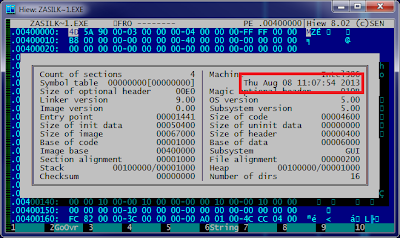 |
| Android Kitkat |
The ‘ART’istic Android: Making your Smart Phone Smarter
Android’s ‘KitKat’ version just replaced their penultimate update ‘Jelly Bean’ on October 31 and very recently, at the start of December, update 4.4.2 was released. What was the idea behind releasing updates in such a quick succession? What was there which Google couldn’t hold back till the New Year? Was it a sinister bug which required a fix or a Christmas goodie? The answer is ART; an update that would really position Android differently, if not ahead, of the competition.
ART or Android Run Time is responsible for running all the applications on the Android system. It has ousted its predecessor ‘Dalvik’ (named after the village of Dan Bornstein, Android’s Creator, in Iceland) which was performing the similar task since the time Android was first released. Compared to ART, as per the tech gurus across the globe, Dalvik was “not that great”. The update will provide the following benefits to the users:
1. Speed
The previous version of the executer used the ‘Just-In-Time’ (JIT) process, which means that the app source of the application had to be converted into the executable program, every time the application started. Don’t be bewildered! Yes it does, in a jiffy.
Whereas, the new version uses ‘Ahead-Of-Time’ (AOT) process and the application is assembled and ready to be executed when the app is installed. To increase your bemusement, Dalvik’s jiffy is not that fast anymore. The application start time will be reduced by a further 50% and will have ‘The Fast Effect’ on the speed of your smart phone.
2. Reduced Battery Downtime
The background processes will be running faster than before and the phone will actually work smart than working hard to run those background apps and processes. While using the phone you will not be able to see much of a difference, however, the battery which used to drain in the efforts to keep the processes running will now cool down, thus leaving a positive impact on the juice.
Reports from Google claimed an improved 30% boost in the IST (Idle Standby Time) however the users and the critics have their own point of view. Quoting the Technical Gurus the improvement was visible in the IST, however, not at 30% as claimed by the developer but to a significant 20%, keeping in mind the continuous updates and refinements.
The after effects of ART
As usual, the pros are always accompanied by the cons; the ART also has couple of ‘em attached to it.
1. More Storage
The applications not only took a little long to be installed on the smart phone but they also ate up more space. In the previous version, due to the availability of JIT process the application freed-up the space when they were closed, however, with the use of ART the space acquired was 10%-20% more. This is due to the programs written in such a manner that this problem was visible and predictable. But if a 3 MB (Mega Bytes) application uses 3.3 MB or 3.5 MB, at max, space on your 32 GB smart phone, you would not worry much about it.
2. Compatibility Issues
With the release of ART and the critics using it, it was cited that at the initial stages many applications were having compatibility issues including WhatsApp, however, with the latest update 4.4.2 the compatibility issues have been fixed. 99% of the major applications were found running smoothly with the fixed version. The list of the compatible apps is long and robust. For those finding any trouble with any frequently used applications, you may switch to and fro between Dalvik and ART.
How to use ART on the phone
If you run Android 4.4 on your handset, which should be a Google Nexus Series or a tailor-made ROM on an embedded device then you can easily upgrade the same, however, the other handset majors have planned to switch to Android ‘KitKat’ 4.4 in the first Quarter of 2014, a version which is more friendly to budget phones in contradiction to the predecessor versions. This is how you can change the phone settings:
Go to settings then ‘About Phone’
Tap the ‘Build Number’ repeatedly until you get the announcement you’re a developer
Go back to settings where you will see a new ‘Developer options’ section
In Developer options change ‘Select runtime’ to ‘Use ART’
The phone shall take 10-20 minutes for performing the reboot, in which it will convert the applications into ART compatible mode. Your data shall remain safe, however, be sure to back it up before applying these changes. Repeat the similar process should you wish to switch back to Dalvik.
Now sit back and enjoy being ‘ART’istic!















.jpg)


.jpg)
.jpg)
.jpg)



